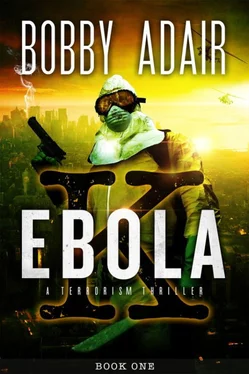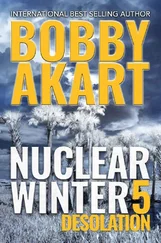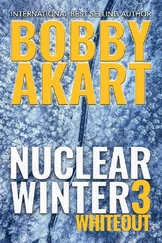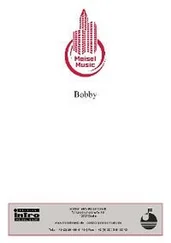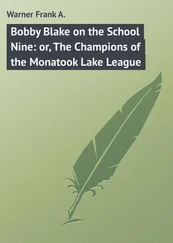Jalal kept pumping. “That’s a broad statement, mate. We’re helping these people. That’s what they said we’d do. They said it was our cover story. It makes sense.” Jalal looked at Salim. “It doesn’t to you?”
“Of course it does. It makes fantastic sense.” Salim rolled his eyes.
“Sarcasm won’t make your point,” said Jalal. “Tell me what doesn’t make sense.”
“Well—” Salim gestured toward the yellow HAZMAT guys.
Jalal shrugged and pumped more water. “What about them?”
“Are you kidding?” Salim asked. “Are they with us? They told us when we got off the truck that they were aid workers. Why do they have guns? Why don’t they aid anyone?”
Jalal looked at the men in yellow standing with their guns and doing nothing but looking bored. “They’re here for security. You know how these kinds of situations get.”
Salim lowered his voice as his impatience rose. “No, Jalal, I don’t know how these situations get.”
“Well it makes sense that we might need security, right?” Jalal asked.
“Yeah, of course.”
“There, then,” Jalal concluded.
“Why the yellow suits? Why don’t we have suits?” Salim asked.
Water sloshed out of the top of one of the water pails as Jalal moved it away from the pump. Jalal pointed to the main hospital building. “That one next.”
Salim looked over at the school. “We did all three buildings there. Are we taking anything to the church?”
Jalal laughed quietly, but harshly. “Christians?”
Salim shrugged, and they walked up the dirt road toward the hospital building.
Jalal said, “It’s typhoid. We don’t need the suits.”
“Then why do they need them?” asked Salim.
Jalal smiled. “Maybe they’re ignorant wankers.”
Salim shook his head and walked a bit. “Why aren’t we boiling the water?”
“Because it would be a lot of trouble.” Jalal stopped in the road. Salim stopped and looked at him. Jalal said, “We’re drawing water from a well in the middle of Africa, mate. It’s probably cleaner than the water we get at home.”
“I think typhoid spreads through the water system.” Salim told him flatly.
“That’s not what I heard,” Jalal countered.
“Heard? Heard from whom?”
“I remember from school,” said Jalal.
“What do you remember?”
Jalal started to walk forward with his bucket. “I don’t know.”
Frustrated, Salim asked, “Then why did you say that?”
“What do you remember about typhoid from school? Did you take a class in diseases or something?” asked Jalal.
“No, I don’t remember where I learned it. I just remember it’s a disease that spreads through water.”
“Fine. Is it a virus or a bacteria?”
Salim was getting frustrated. “Why are you being such an asshole? I’m not trying to argue with you about something you think you know, but don’t. I just want to understand what’s going on.”
“Take it on faith, Salim.”
“What, that you think you know something about typhoid, but don’t?”
Jalal shook his head. “It sounds like you don’t know anything about typhoid, either. You’re stressed and you’re trying to think of reasons why you think they’re going to screw us. But think about it, mate. Why would they screw us? How could they screw us? We’ve already promised our lives to the cause. What more could they get out of us?”
Salim shrugged. “I don’t know. Have you seen anybody taking pictures of us? Weren’t they supposed to be taking pictures of us to post?”
“Just do your work. There are a lot of us here. They’ll get to us.”
“We’ve been here for eight hours, at least,” replied Salim.
Jalal didn’t answer. They climbed the stairs. Salim opened the hospital door and followed Jalal inside.
Jalal took his pail and a metal cup and started on one side of the center aisle. Salim went to work on the other. They stopped by each bed or mat, tried to get the patient to drink, then moved to the next.
By the time Salim had visited ten beds, he’d already come across two patients he was sure were dead. Several were alive but unresponsive. Most of them had blood-red eyes, and some of them had blood on their blankets, clothes, and skin.
About halfway up on his side of the ward, Salim came to a cot that held a young Arab man. He had an IV—the only one Salim had seen. He was clean. He wore blue hospital scrubs—recently washed. His sheets weren’t stained in filth. A man in a plastic yellow suit hovered over the young man and waved Salim past.
The next surprise was a pair of Caucasians—a young man on a cot and a woman with absent eyes on a mat on the floor. Salim shuffled up between them, knelt by the familiar-looking young man, shook him awake, and held the cup of water up near his face.
The young man’s eyes snapped open. At first, he just stared at the ceiling. Salim helped him to sit up a bit and held the cold cup of water to the boy’s lips. But instead of drinking, the boy looked at Salim’s face, studied it, and croaked, “Sam?”
In that same second, Salim recognized the boy as Austin Cooper. They’d gone to high school together.
What the hell?
Then the terror set in. It wouldn’t go well for him if anyone realized the sick boy knew him. Those in charge would jump to conclusions, and those conclusions would be bad. Salim stood straight up—looking up as he did—and saw the guy in the HAZMAT suit beside the tidy Arab kid’s bed staring at him.
Eric stopped by the conference room. Inside, Olivia Cooper and Barry Middleton shared the desk. The room was bigger than the one Eric and Olivia had occupied earlier in the day. It held an oblong table designed to seat six. In the center of the table sat a conference call phone set and a projector, which at the moment wasn’t hooked up to either computer.
Eric dropped himself into a chair and asked, “What do you have?”
Olivia pointed at Barry and said, “Barry got us the lists of passengers on all the flights for the past several days, including Salim’s flight.”
Eric took a drink of his coffee. “And?”
“I’m working on the information, but it looks like there’s been a big spike in passengers flying from Lahore to Nairobi on Western passports.”
“A big spike?” replied Eric.
“It seems to have gone up significantly compared to the day before.”
Eric shook his head. “By itself, that information is somewhat meaningless.”
“Yes,” Olivia agreed. “Barry is pulling in information from the past month so we can see how far it deviates from the trend.”
Eric shook his head. “Statistical anomalies are interesting, and they may mean something, but you know if you go into a problem with a bias toward finding a certain solution, even in random data, you’re going to find a pattern that supports your solution. All you have to do is look long enough.” Eric glanced at Barry. “I shouldn’t have to tell you that.”
Olivia spoke up to pull the attention back to herself. “This isn’t all we’ve found. Thirteen of those Western passport holders are young men from the ages of nineteen to twenty-seven. All left the United States within the past four months.”
Eric said, “You have my attention.”
“They are all on our list.”
In the department, The List didn’t need to be named specifically. It was the list they were tasked with monitoring—US citizens who’d gone abroad under suspicious circumstances—those under suspicion of potentially joining an anti-American radical group.
Eric turned to Barry. “You confirmed this?”
Barry nodded. “It gets better.”
Читать дальше
